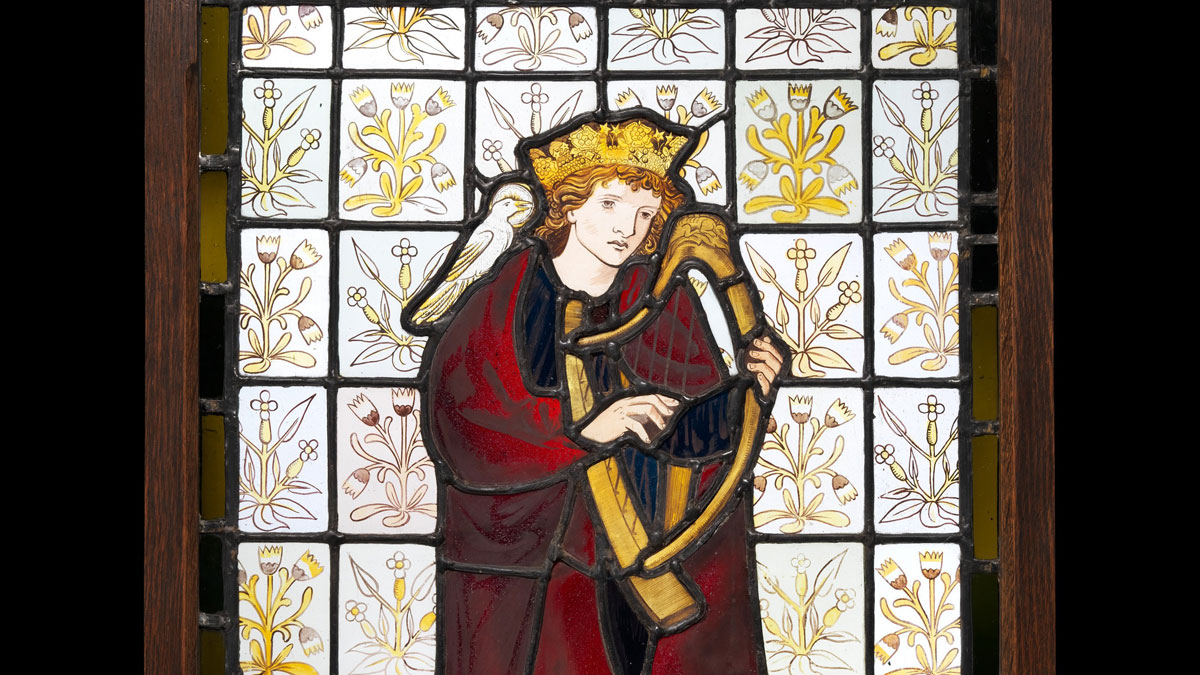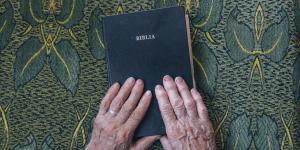You are here
Why Are Certain Biblical Psalms Used by Book of Mormon Authors?

Jacob 6:6
The Know
The idea that the Nephite authors of the Book of Mormon may have had used the Psalms in their writings has become a topic of interest among LDS scholars in recent years. For example, many people have analyzed “Nephi’s Psalm” (2 Nephi 4:16–35), and how it compares with and even borrows from the biblical book of Psalms.[1] Scholars have also noted the prophet Jacob’s clear usage of Psalm 95 in his book.[2]
BYU Professor of Religious Education John Hilton III has recently conducted research attempting to identify as many connections as possible between Old Testament Psalms and the Book of Mormon.[3] Hilton’s study, as well as research from other scholars, has been very fruitful, and has shown that the study of the use of the Psalms in the Book of Mormon deserves more attention.
Here at Book of Mormon Central, we have done what is likely the most extensive study of the use of the Psalms in the Book of Mormon. We first used a computer program to find matches between phrases in the book of Psalms and the Book of Mormon. Then, we carefully looked at each match, and used an established method to determine which phrase was actually a Psalms quotation, and which was just a coincidence.
The results of this research show that there are at least sixty good examples of the use of phrases from the Psalms in the Book of Mormon. The Psalms that appear in the Book of Mormon, according to our study, are Psalms 1, 2, 4, 6, 8, 9, 12, 14, 18, 22, 23, 24, 27, 28, 30, 31, 34, 35, 44, 46, 51, 52, 62, 74, 86, 89, 95, 106, 107, 110, 115, 118, and 145. The most-used psalms, according to our research, are 18, 31, 51, 95, and 107. For a list of which parts of these psalms were used, and where, please see the appendix below.
The Book of Mormon books that quote the Psalms most often are Nephi, Jacob and Alma. Books that do not have references to the Psalms, according to our findings, are Enos, Jarom, Omni, Words of Mormon, Helaman, and 4 Nephi. There are very few references to the Psalms in Mosiah, Mormon, Ether, and Moroni.
In the books from the Book of Mormon that do have several Psalms quotations (1 Nephi, 2 Nephi, Jacob, Alma, 3 Nephi), they are generally scattered throughout the books. The chapters that use the Psalms most often are 2 Nephi 4, Alma 5, 26, and 37.
The Why
Generally speaking, the psalms that we would most expect to show up in the Book of Mormon do actually appear, while those we would not expect to be present are largely absent. Psalms from throughout the biblical book of Psalms are found in the Book of Mormon, but a large concentration of those present are from the initial collection of Psalms made by King David: 3–41. Sixteen of these appear in the Book of Mormon, according to our findings. Most scholars agree that these Psalms were written before Lehi left Jerusalem, so it is likely that they would have been on the Plates of Brass and that Book of Mormon prophets would have had access to them.[4]
We do not see many of the Royal Psalms,[5] the psalms that emphasize kingship, in the writings of Nephi and Jacob, even though they were written before the time of Lehi. However, some of these Royal Psalms do show up later, in the time of King Benjamin and in the writings of Alma the Younger. This may suggest that Nephi and Jacob left these Psalms out because they focused on the ideology of the Davidic monarchy, an ideology that Nephi and Jacob seem to have been disillusioned with.[6]
Some of the psalms consist of collections from various people, such as Korah and Asaph. These two collections are generally considered to be from a later time, with some hymns possibly dating to before the time of Lehi, but with most of the hymns being written later. Very few of the Psalms from these collections appear in the Book of Mormon. Some that are found, like Psalm 86, are considered to be earlier compositions. Some of the psalms from later collections that show up in the Book of Mormon may still be from before Lehi’s time. This is because earlier psalms, such as Psalms 89, 106, 107, 110, and 145, were scattered throughout the book in strategic positions to give the book a more Davidic flavor.
Although the belief that King David wrote all, or most, of the Psalms (which would make them all pre-exilic) is common, it is clear from the Psalms themselves that this is not the case. Only 73 of the 150 Psalms are directly attributed to David in the Psalm headings, whereas 12 are attributed to Asaph, 11 to the “sons of Korah,” and others to Solomon, Moses, and others. Biblical scholars have found that many of the Psalms were written after the time of Lehi, based on what these Psalms are about.
It is also important to note that the earliest examples of biblical Psalms that exist (from the Dead Sea Scrolls) are found in collection that do not all match the order of Psalms found in the Bible as we know it today. It has become clear that the Psalms were often gathered into different groupings and in a different order than what is found in the bible as we know it.[7] These findings demonstrate that a good case can be made for why most (or all) of the psalms present in the Book of Mormon should be there, based on the time period Lehi left Jerusalem. This is yet another sophisticated piece of evidence that testifies to the ancient origins of the Book of Mormon.
Further Reading:
Matthew Nickerson, “Nephi’s Psalm: 2 Nephi 4:16–35 in Light of Form-Critical Analysis,” Journal of Book of Mormon Studies 6, no. 2 (1997): 26–42.
Kenneth L. Alford and D. Bryce Baker, “Parallels between Psalms 25–31 and the Psalms of Nephi,” in Ascending the Mountain of the Lord: Temple, Praise, and Worship in the Old Testament (2013 Sperry Symposium), ed. Jeffrey R. Chadwick, Matthew J. Grey, and David Rolph Seely (Salt Lake City and Provo, UT: Deseret Book and Religious Studies Center, Brigham Young University, 2013), 312–328.
John Hilton III, “Old Testament Psalms in the Book of Mormon,” in Ascending the Mountain of the Lord: Temple, Praise, and Worship in the Old Testament (2013 Sperry Symposium), ed. Jeffrey R. Chadwick, Matthew J. Grey, and David Rolph Seely (Salt Lake City and Provo, UT: Deseret Book and Religious Studies Center, Brigham Young University, 2013), 291–311.
Appendix
|
Book of Mormon Order |
Psalms Order |
|
|
|
|
|
|
|
|
|
|
|
|
|
|
|
|
|
|
|
|
|
|
|
|
|
|
|
|
|
|
|
|
|
|
|
|
|
|
|
|
|
|
|
|
|
|
|
|
|
|
|
|
|
|
|
|
|
|
|
|
|
|
|
|
|
|
|
|
|
|
|
|
|
|
|
|
|
|
|
|
|
|
|
|
|
|
|
|
|
|
|
|
|
|
|
|
|
|
|
|
|
|
|
|
|
|
|
|
|
|
|
|
|
|
[1] See, for example, Matthew Nickerson, “Nephi’s Psalm: 2 Nephi 4:16–35 in Light of Form-Critical Analysis,” Journal of Book of Mormon Studies 6, no. 2 (1997): 26–42; Kenneth L. Alford and D. Bryce Baker, “Parallels between Psalms 25–31 and the Psalms of Nephi,” in Ascending the Mountain of the Lord: Temple, Praise, and Worship in the Old Testament (2013 Sperry Symposium), ed. Jeffrey R. Chadwick, Matthew J. Grey, and David Rolph Seely (Salt Lake City and Provo, UT: Deseret Book and Religious Studies Center, Brigham Young University, 2013), 312–328; John Hilton III, “Old Testament Psalms in the Book of Mormon,” in Ascending the Mountain of the Lord, 291–311; David Bokovoy, “From Distance to Proximity: A Poetic Function of Enallage in the Hebrew Bible and the Book of Mormon,” Journal of Book of Mormon Studies 9, no. 1 (2000): 60–63; Book of Mormon Central, “Is ‘Nephi’s Psalm’ Really a Psalm? (2 Nephi 4:16–17),” KnoWhy 30 (February 10, 2016).
[2] See David Bokovoy, “Ancient Temple Imagery in the Sermons of Jacob,” in Temple Insights: Proceedings of the Interpreter Matthew B. Brown Memorial Conference (The Temple on Mount Zion, 22 September 2012), ed. William J. Hamblin and David Rolph Seely (Orem and Salt Lake City, UT: The Interpreter Foundation and Eborn Books, 2014), 171–186; Hilton, “Old Testament Psalms in the Book of Mormon,” 300–303; Book of Mormon Central, “Why Does Jacob Quote So Much from the Psalms? (Jacob 1:6; cf. Psalm 95:8),” KnoWhy 62 (March 25, 2016).
[3] Hilton, “Old Testament Psalms in the Book of Mormon,” in Ascending the Mountain of the Lord.
[4] See Book of Mormon Central, “What Parts of the Old Testament Were on the Plates of Brass? (1 Nephi 5:10),” KnoWhy 410 (February 22, 2018).
[5] The term “Royal Psalms” was used in the early nineteenth century by Wilhelm de Wette to refer to those Psalms which had been considered messianic, which he understood to refer to reigning kings of Israel/Judah and which celebrated the “office” of kingship. See W. M. L. de Wette, Commentar über die Psalmen (Heidelberg: J. C. B. Mohr, 1811), 4. When Hermann Gunkel developed his groundbreaking “form-critical” method for identifying genres in the Hebrew Bible and applied it to the Psalms, one of his categories was “Royal Psalms.” He listed Psalms 2, 18, 20, 21, 45, 72, 101, 110, 132, and parts of 89 and 144 in this classification. Others have added to this list.
[6] See Book of Mormon Central, “How Can the Old Testament Covenants Help Us Understand the Book of Mormon? (1 Nephi 2:12–13),” KnoWhy (September 12, 2017).
[7] The earliest attestations of the biblical psalms available are those found on the many Psalms scrolls discovered among the Dead Sea Scrolls. Although most of the Psalms found there appeared almost exactly as they do in the Hebrew Bible as we know it, some of the scrolls have the Psalms appearing in different sequences. Scrolls that vary from the order found in the Hebrew Bible (Old Testament) include: 4Q83, 4Q84, 4Q86, 4Q87, 4Q92, 4Q95, 4Q98, 11Q5, 11Q6. Besides demonstrating a different order than what is found in the Hebrew Bible, some of these Psalms scrolls have non-canonical psalms intermingled with the canonical. Furthermore, some of the individual psalms found at Qumran display a different order of verses than that found in the biblical versions. For example, the scroll labeled 4Q98g contains parts of the end of Psalm 89 in the following order of verses from the Hebrew Bible: 20-22 à 26 à 23 à 27–28 à 31. The reason for this alternate sequence of verses is unknown, but some scholars argue that this version of Psalm 89 may be older than the biblical rendition. If these differences in the Psalms can be seen at the relatively late date of the Qumran scrolls, it is very possible that more ancient versions (such as those that may have been available to the Nephites) would have contained different sequences as well. As such, any Psalms material contained in the Book of Mormon cannot necessarily be expected to follow the same order of phrases/verses as our current biblical Psalter. See P. W. Skehan, “Gleanings from Psalm Texts from Qumrân,” in Caquot and M. Delcor (eds.), Mélanges bibliques et orientaux en l’honneur de M. Henri Cazelles (AOAT 212; Neukirchen-Vluyn: Neukirchener Verlag, 1981), 439; also P. W. Flint, “A Form of Psalm 89 (4Q236 = 4QPs89),” in The Dead Sea Scrolls: Hebrew, Aramaic, and Greek Texts with English Translations, The Princeton Theological Seminary Dead Sea Scrolls Project, Volume 4A: Pseudepigraphic and Non-Masoretic Psalms and Prayers, ed. J. H. Charlesworth and H. W. L. Rietz (Tübingen: Mohr-Siebeck; Louisville: Westiminster-John Knox Press, 1998), 40–41.
KnoWhy Citation
Related KnoWhys
Subscribe
Get the latest updates on Book of Mormon topics and research for free





